Covid-19 travel recommendation
Fully vaccinated travelers are less likely to get and spread COVID-19. However, international travel poses additional risks, and even fully vaccinated travelers might be at increased risk for getting and possibly spreading some COVID-19 variants.
Do not travel internationally until you are fully vaccinated. If you are not fully vaccinated, there are additional recommendations to follow before, during, and after travel.
Before You Travel Internationally
Make sure to plan ahead:
Follow all airline requirements as well as any requirements at your destination, including mask wearing, proof of vaccination, testing, or quarantine. Requirements may differ from your country's requirements. If you do not follow your destination’s requirements, you may be denied entry and required to return to your country of origin.
Testing (RECOMMENDED)
If you are not fully vaccinated, get tested with a viral test 1–3 days before your trip.
Do NOT travel if…
- You have been exposed to COVID-19 unless you are fully vaccinated or recovered from COVID-19 in the past 90 days.
- You are sick.
- You tested positive for COVID-19 and haven't ended isolation.
- You are waiting for results of a COVID-19 test.
- Learn what to do in each of these situations and when it is safe for you to travel if you or your travel companion may have COVID-19.
During Travel
Masks (REQUIRED)
Wearing a mask over your nose and mouth is required in indoor areas of public transportation (including on airplanes) traveling into, within, or out of Vietnam and indoors in Vietnam's transportation hubs (including airports).
Protect Yourself and Others (RECOMMENDED)
Follow all recommendations and requirements at your destination, including wearing a mask and staying 6 feet (2 meters) apart from anyone who did not travel with you.
Wash your hands often with soap and water or use hand sanitizer with at least 60% alcohol.
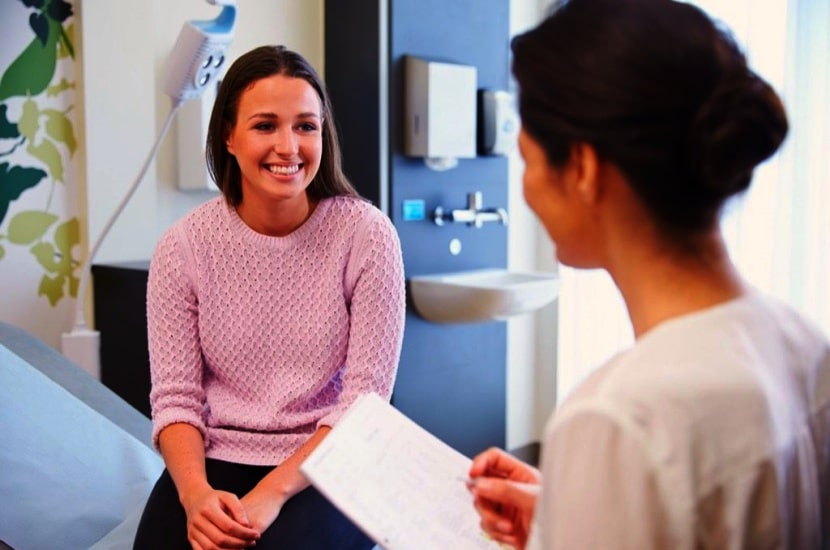
You will find below more detail about the popular diseases in Vietnam and the recommended vaccines that you should have before traveling to the country.
Vietnam’s popular diseases
Travelers to Vietnam are recommended to get the appropriate vaccinations and take precautions, so as not to become infected. Here are five of the most common diseases in Vietnam:
1. Chikungunya
This disease, rare in America, is present in Vietnam because of the high humidity and mosquito population. Spread through the bite of an infected mosquito, chikungunya can cause symptoms such as fever, joint pain, fatigue and nausea. Although this disease is not pleasant, it is rarely lethal.
2. Rabies
In Vietnam, it is very expensive to vaccinate dogs and animals that carry rabies. However, with over 900 deaths in the past decade caused by rabies, it is necessary to take action against this disease.
This very serious illness occurs when an infected animal bites a human. While the first few symptoms may not feel abnormal (fever, headache and weakness), the next wave of symptoms (anxiety, confusion or hallucinations) usually leads to death within a few days.
3. Japanese Encephalitis
The CDC recommends that travelers get a vaccination against this common disease if they are staying in Vietnam for more than a month. Also contracted through the bite of a mosquito, this disease is much more serious than chikungunya and can lead to death. Prevent the disease by taking precautions against mosquitoes.
4. Typhoid Fever
Typhoid fever is common in Southeastern Asia. This disease is spread through unclean food and water or through an infected person. Antibiotics and vaccinations are available to treat and prevent typhoid in Vietnam, but washing hands frequently and staying away from unclean areas is recommended, too.
5. Tuberculosis (TB)
Tuberculosis is one of the most common diseases in Vietnam. According to USAID, “Annually, it is estimated that Vietnam has 17,000 TB deaths.” This huge number has pushed researchers to examine how to stop this terrible infection.
TB is a bacteria-spread disease that is most commonly contracted from people’s coughs, sneezes or even just a discussion. Mayo Clinic says that “without treatment, tuberculosis can be fatal.”
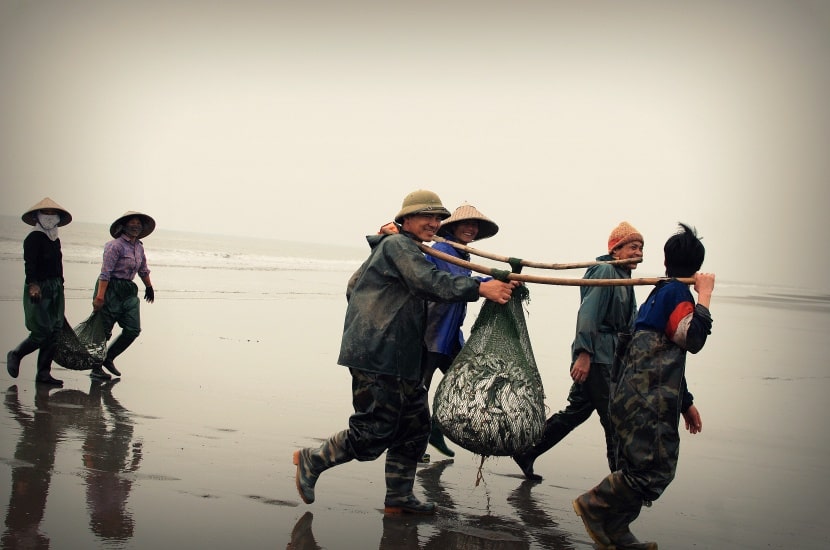
Vietnam Travel Vaccinations
For most short-term travelers the usual recommended vaccinations for Vietnam include cover against the childhood diseases (Tetanus and Diphtheria, Measles, Mumps and Rubella) as well as cover against the food and water borne diseases, including Typhoid and Hepatitis A. For those trekking in the Vietnamese countryside or staying for longer periods cover against Hepatitis B and Rabies should also be considered.
The recommended time to start your vaccines is four to six weeks before leaving home. However, those planning a longer visit, or where if the planned trip is likely to bring them to more rural parts of Vietnam, should book their consultation earlier to ensure that there is sufficient time to complete the vaccine courses.
Vietnam is endemic for Malaria and the risk of transmission occurs in many regions of the country. Therefore, malaria prophylaxis may need to be considered, depending on your itinerary.
The biggest risks for travelers to Vietnam tend to be associated with food and water borne diseases, mosquito bites and the traffic. Common-sense and care is needed at all times to ensure a good, safe holiday.
Check the table to have more idea of what immunizations you should have depending on the places you visit and what you plan to do.
| Vaccine |
Staying in the Cities |
Exploring Rural Vietnam |
Visiting Border Regions |
Hiking and Trekking |
| Tetanus |
✓ |
✓ |
✓ |
✓ |
| Typhoid |
✓ |
✓ |
✓ |
✓ |
| Hepatitis A |
✓ |
✓ |
✓ |
✓ |
| Hepatitis B |
|
|
|
✓ |
| Meningococcal |
|
✓ |
|
|
| Tuberculosis |
|
✓ |
|
|
| Japanese Encephalitis |
|
✓ |
|
|
| Malaria |
|
|
✓ |
|
| Rabies |
|
|
|
✓ |
| Dengue Fever |
Optional |
Optional |
Optional |
Optional |
Below is the list of recommended vaccines from CDC
All travelers
Covid-19
Everyone 12 years of age and older should get fully vaccinated for COVID-19 before travel. This vaccine is compulsory for any visitors planning to travel to Vietnam.
Infants (6 through 11 months old): 1 dose of measles-mumps-rubella (MMR) vaccine before travel. This dose does not count as the first dose in the routine childhood vaccination series.
People 12 months old or older, with no evidence of immunity or no written documentation of any doses: 2 doses of MMR vaccine before travel. The 2 doses must be given 28 days apart.
People 12 months old or older who have written documentation of 1 dose and no other evidence of immunity: 1 additional dose before travel, at least 28 days after the previous dose.
Make sure you are up-to-date on routine vaccines before every trip. These vaccines include measles-mumps-rubella (MMR) vaccine, diphtheria-tetanus-pertussis vaccine, varicella (chickenpox) vaccine, polio vaccine, and your yearly flu shot.

Most travelers
CDC recommends this vaccine because you can get hepatitis A through contaminated food or water in Vietnam, regardless of where you are eating or staying.
You can get typhoid through contaminated food or water in Vietnam. CDC recommends this vaccine for most travelers, especially if you are staying with friends or relatives, visiting smaller cities or rural areas, or if you are an adventurous eater.
Some travelers
You may need this vaccine if your trip will last more than a month, depending on where you are going in Vietnam and what time of year you are traveling. You should also consider this vaccine if you plan to visit rural areas in Vietnam or will be spending a lot of time outdoors, even for trips shorter than a month. Your doctor can help you decide if this vaccine is right for you based on your travel plans. See more in-depth information on Japanese encephalitis in Vietnam.
You can get hepatitis B through sexual contact, contaminated needles, and blood products, so CDC recommends this vaccine if you might have sex with a new partner, get a tattoo or piercing, or have any medical procedures.
When traveling in Vietnam, you should avoid mosquito bites to prevent malaria. You may need to take prescription medicine before, during, and after your trip to prevent malaria, depending on your travel plans, such as where you are going, when you are traveling, and if you are spending a lot of time outdoors or sleeping outside. Talk to your doctor about how you can prevent malaria while traveling. Areas of Vietnam with risk of malaria: Rural areas only. Rare cases in the Mekong and Red River Deltas. None in the cities of Da Nang, Haiphong, Hanoi, Ho Chi Minh (Saigon), Nha Trang, and Qui Nhon. See more detailed information about malaria in Vietnam.

Rabies can be found in dogs, bats, and other mammals in Vietnam, so CDC recommends this vaccine for the following groups:
- Travelers involved in outdoor and other activities (such as camping, hiking, biking, adventure travel, and caving) that put them at risk for animal bites.
- People who will be working with or around animals (such as veterinarians, wildlife professionals, and researchers).
- People who are taking long trips or moving to Vietnam
- Children, because they tend to play with animals, might not report bites, and are more likely to have animal bites on their head and neck.
Stay healthy and safe in Vietnam
Although Vietnam is a safe place to visit, there is a certain number of safety notices and precautions that you need to follow to have a smooth journey.
Check out the dedicated article about the safety and precautions in Vietnam here
Below you can find some extra notices from CDC to help you have a healthy trip in Vietnam (or everywhere)
Eat and Drink Safely
Vietnam is renowned for its wonderful food, and there are thousands of street stalls and markets offering all sorts of delicious treats. However contaminated food and water can cause traveler’s diarrhea and other gastrointestinal illnesses such as Typhoid and Hepatitis A.
- Food: CDC recommends consuming food that is properly cooked and served hot, ensuring fruit and vegetables are washed in clean water, avoiding food from street vendors, not consuming unpasteurized dairy products, and not eating “bush-meat” (monkeys, bats, or other wild game).
- Water: Presume water from any tap, well, or other local sources, as non-potable. Use bottled or treated water for consumption and when brushing your teeth and rinsing your mouth. Never assume that ice is made from filtered water.
Prevent Insect Bites
Some viruses and illnesses in Vietnam are contracted by insects, particularly mosquitoes. Here are some insect avoidance tips.
- Sleep in insect-proof or air-conditioned rooms
- Wear long-sleeved clothing, long pants, and hats outdoors, day and night, especially at dawn and sunset
- Use permethrin-treated clothing and gear, such as boots, pants, socks, and tents
- Use personal repellents on exposed skin–the most effective mosquito and tick repellents contain DEET; look for a minimum 20%
- Avoid dark-colored clothing and strong scents such as perfume, aftershave, and perfumed cosmetics and deodorants as these may attract mosquitoes
- Ensure large amounts of standing water is not left around unnecessarily
Stay away from Animals
In Vietnam, there are many street dogs and cats that may not have been immunized. Generally, they don’t bother people unless they feel threatened or their territory has been invaded. Animal bites and scratches can lead to serious diseases such as Rabies. Even cute puppies, monkeys, cats, and bats can carry the disease, so avoid touching or feeding animals you don’t know. If you’re bitten or scratched seek medical advice immediately.
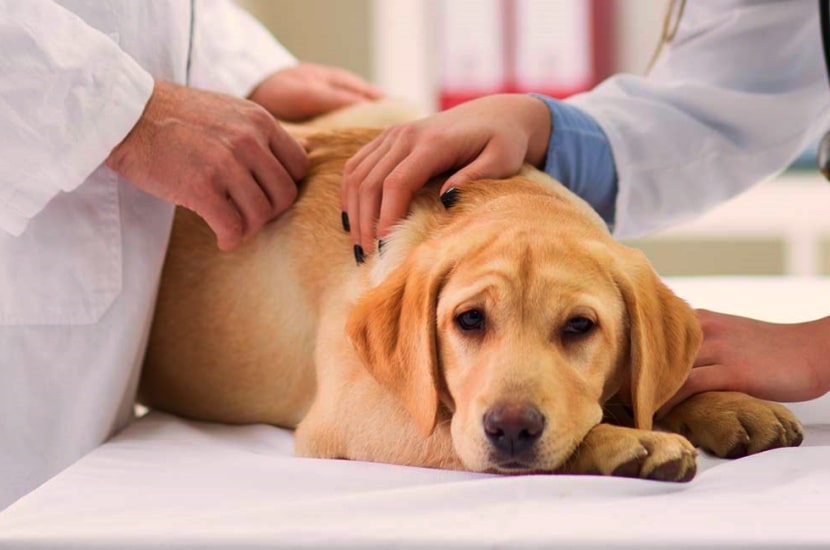
Avoid Sharing Body Fluids
Diseases and viruses such as Hepatitis B, HIV and Aids, and TB may be passed by the exchange of body fluids. Practice safe sex, don’t share needles, and ensure any medical instruments used are sterile.
Reduce Exposure to Germs
Good hygiene practices help you avoid sickness and spreading illnesses to others. Wash your hands often, especially before eating. Carry hand sanitizer containing at least 60% alcohol. Cover your mouth and nose with a tissue or your sleeve (not your hands) when coughing or sneezing. If possible avoid contact with people who are sick or if you’re sick.
In case of serious health problem
The local health system is still deficient outside major cities, such as Hanoi and Hồ Chí Minh City. The care is in principle fast and the price of the consultation is modest. Otherwise, very large hotels usually offer a list of often multilingual doctors.
Some foreign and private health structures have established themselves and offer very good quality care such as the Family Medical Practice based in Hồ Chí Minh City, Danang and Hanoi. However, these structures implementing premium prices, we advise you to take out a “travel insurance” before your departure.
In the event of a cardiovascular problem or other serious health concern, you can call on the International Medical Center in Hồ Chí Minh-City (former Heart Foundation), where highly trained doctors and surgeons receive both foreigners and Vietnamese nationals.
Outside of these institutions, it is better to seek urgent health care abroad: Bangkok is 1 hour by plane and offers good quality care. A little further, Hong Kong and Singapore. Otherwise, go back to your home country.
Malaria is a risk in some parts of Vietnam. If you are going to a risk area, fill your malaria prescription before you leave, and take enough with you for the entire length of your trip. Follow your doctor’s instructions for taking the pills; some need to be started before you leave.

Healthy travel packing list
Packing a basic health kit is a good idea no matter where you are going, and truly imperative if you have any sort of health conditions or take regular medications.
- Personal medical essentials plus Epi Pen if necessary
- Copies of all your prescriptions/immunizations and your doctor’s phone number
- First aid kit: Imodium, ibuprofen, paracetamol, tums/antacid tablets, Benadryl
- Allergy meds, asthma inhalers, & eye drops
- An adequate supply of prescription medications (knowing the generic name comes in handy)
- Hand sanitizer
- Anti-diarrheal tablets
- Antibiotic cream/ointment
- Anti-malarial if necessary (check with your doctor and the CDC/WHO before going)
- Anti-itch cream for bug bites
- Tiger balm (for headaches/muscle soreness/sinus issues)
- Band-Aids/bandages
- Mints or ginger to aid digestion and upset stomach
- Essential oils/travel diffuser for wellness regimen
Check the full list of Healthy Packing List from CDC HERE
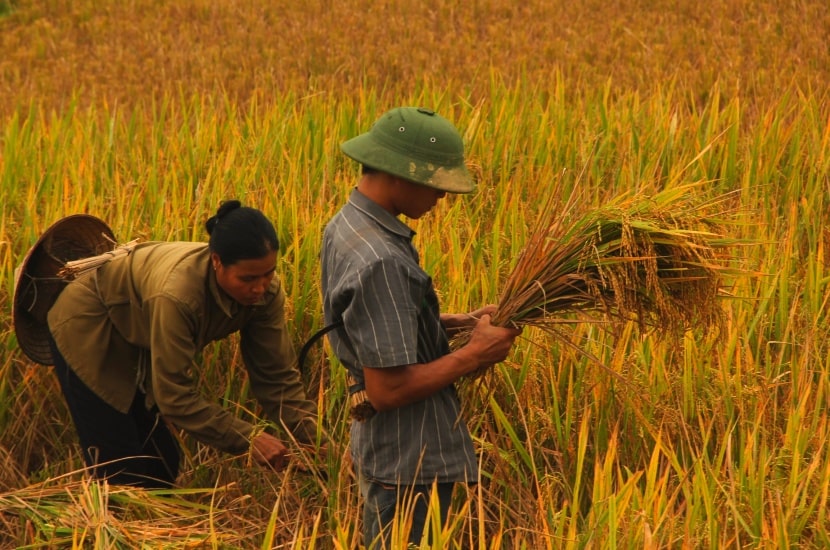
You may want to learn more about Vietnam travel packing list
List of hospitals at some tourist sites
You can find below our list recommended hospitals and clinics at some tourist sites. You can also check the extended list HERE.
Hanoi
Hanoi French Hospital
- Add: 1 Phuong Mai St, Dong Da District
- Web: www.hfh.com.vn
- Email: [email protected]
- Tel: +84 4 35771100
- Emergency: +84 4 35741111
- Mr. Truong Kieu Nghi – Customer Services Manager
Vinmec International Hospital
- Add: 458 Minh Khai St, Hai Ba Trung District
- Web: www.vinmec.com
- Email: [email protected]
- Tel: +84 4 39743556
- Hotline: +84 4 39743558
- Emergency: +84 4 39744333
- Ms. Nguyen Thi Thu Thuy – Customer Services Manager
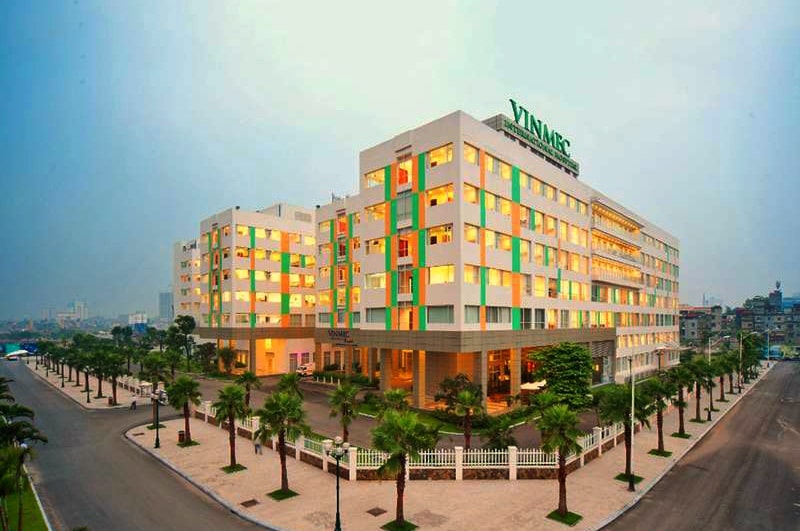
Hô Chi Minh City
Vinmec International Hospital Central Park
- 208 Nguyen Huu Canh, Binh Thanh District
- Tel.: + (84-24) 3622 11 66
Raffles Medical Ho Chi Minh
- Address: 167A Nam Ky Khoi Nghia St, D3
- Ho Chi Minh City.
- Tel: (028) 38240777
- Email: [email protected]
Halong Bay
Vinmec International Hospital – Ha Long City
- Address: 10A Le Thanh Tong Street
- Telephone: +84 203 3828 188
Quang Ninh General Hospital
- Address: Tue Tinh, Bach Dang Ward
- Telephone: +84 203 3825 499/ +84 203 3825 489

Hoi An
Hoi An Medical Services
- Address: 503 Hai Ba Trung Street, Cam Pho
- Telephone: +84 235 3862 257 / +84 913 457 219
Thai Binh Duong – Pacific Hospital
- Address: 6 Phan Dinh Phung, Cam Pho
- Telephone: +84 235 3921 656
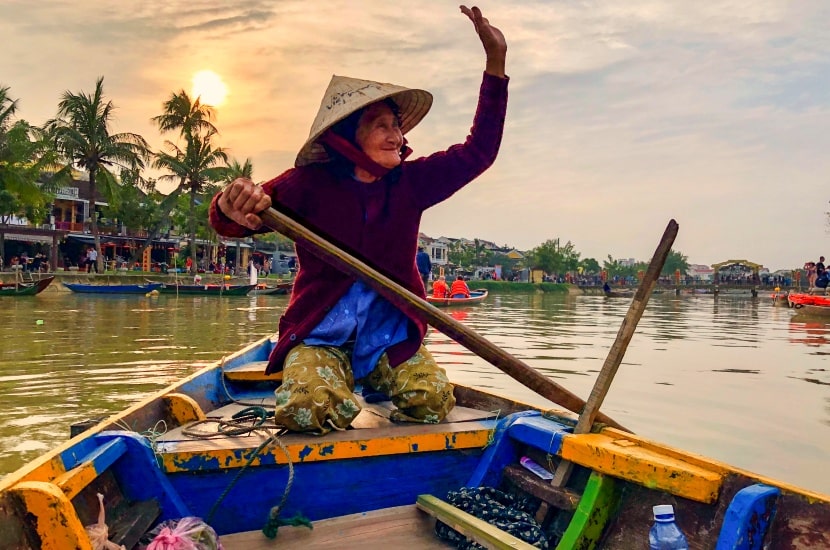
Getting sick after your trip
Sometimes, travelers come home with more than souvenirs. Some travel-related illnesses may not cause symptoms until after you get home. Fortunately, most after-travel illnesses are mild and not a concern, such as a head cold or an upset stomach.
If you feel sick when coming back from Vietnam, you need to see your doctor immediately.
Below are some of the popular problems that may come back with you from your adventure in Vietnam.
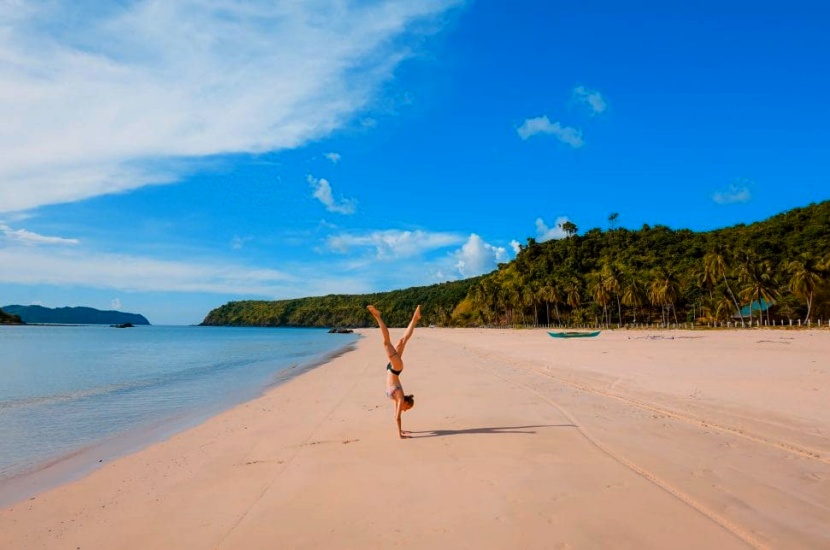
Fever
If you have been in a country with malaria and develop a fever within a month after you come home, see a doctor immediately. Most fevers are caused by less serious illnesses. But because malaria is a medical emergency, your doctor must first rule it out.
A fever could be malaria even if you took antimalarial medicine, because the medicine is not 100% effective. Most malaria develops within 30 days, but rare cases can lie dormant for a year or longer. So always tell your doctor about any travel you have done, even if it was months ago.
Persistent Diarrhea
Most cases of diarrhea go away by themselves in a few days, but see your doctor if you have diarrhea that lasts for 2 weeks or more. Persistent diarrhea can make you lose nutrients and is often caused by a parasitic infection that might need to be treated with special drugs.
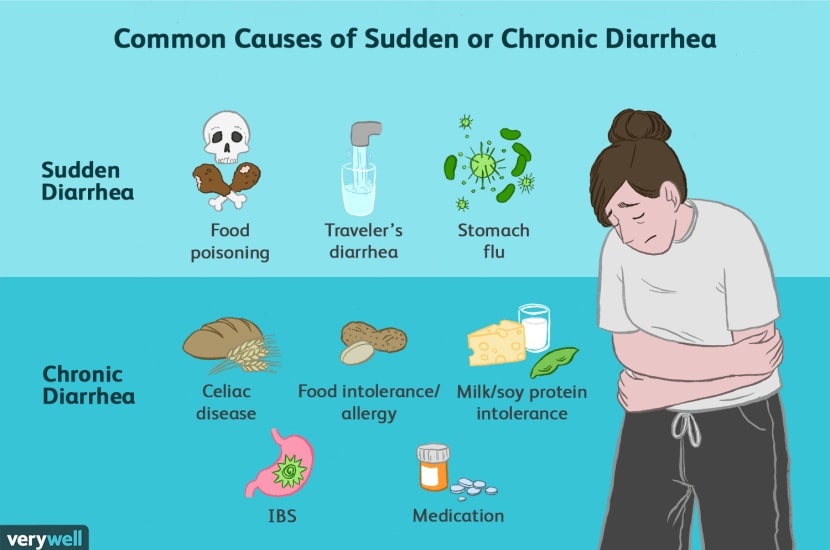
Skin Problems
Skin problems (rashes, boils, fungal infections, bug bites) are among the most common illnesses reported by people who have returned from international travel. Most skin problems are not serious, but they may be a sign of a serious illness, especially if you also have a fever.
At the Doctor
Be sure to tell your doctor about your travel, including where you went and what you did on your trip. This information will help your doctor consider infections that are rare or not found in the United States. Make sure to include all relevant details:
- What you did on your trip.
- How long you were gone.
- Where you stayed (fancy hotel, private home, tent).
- What you ate and drank while you were there.
- Whether you were bitten by bugs or animals.
- Whether you swam in fresh water.
- Whether you received health care abroad.
- Any other possible exposures (sex, tattoos, piercings).



























